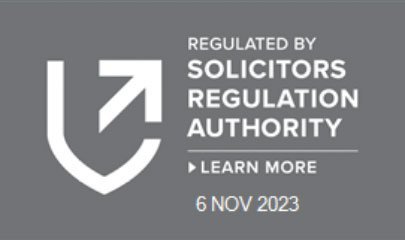Probate and Estate Administration: Legal Terminology

Losing a loved one is distressing enough. Having to deal with the legalities, formalities and paperwork is the last thing on most people’s minds. The legal jargon alone can be confusing.
To ease some of the stress and help you to understand what is happening and what you need to do, we have compiled a glossary of terms that you might encounter.
If you would like help, our lawyers can assist with administering the estate on behalf of trustees and executors. You can be assured that we approach all matters with compassion and sensitivity and, where appropriate, we can assist families with mitigating inheritance tax.
GLOSSARY OF TERMS
| TERM USED | MEANING |
| Administrator(s) | The person(s) required to deal with the deceased’s estate when there is no valid Will for the deceased or where no executors have been nominated in the will. |
| Administration Period | The period between the date of death and the date of the final estate accounts |
| Administration of the Estate | The collecting in, managing, dealing with and distribution of the deceased’s assets and paying all liabilities on their behalf. It is the general wrapping up all of their affairs. |
| Appropriation | The transfer of an asset instead of its sale proceeds on account of a legacy or share of residue. |
| Assets | Things that belong to the deceased, such as a property, investments, shares, bank accounts, chattels etc. Although not all assets have a monetary value. |
| Beneficiary | A person entitled to receive something from the deceased’s person’s estate |
| Bequest | A gift left in a Will. |
| Chargeable gift | A gift on which Inheritance Tax may be payable. |
| Codicil | A legal document by which a person amends his will. |
| Contingent gift | A gift conditional on the happening of a particular event, e.g. a beneficiary reaching 21 years. |
| Creditors | People or businesses who are owed money by the deceased. |
| Debtors | People of businesses who owe the deceased money. |
| Deed of Variation | A legal document which allows relevant beneficiaries to make changes to a will or intestacy rules after the death of the deceased. |
| Disbursement | A payment made to a third party. |
| Estate | When someone dies their affairs fall into their ‘estate’ until such time that matters have been dealt with and a distribution of assets can be made. |
| Estate Accounts | A calculation of the spending incurred during the Administration of the Estate process. Usually approved by the Personal Representative |
| Executor(s) | The person(s) nominated in the deceased’s Will to deal with the estate administration. |
| Goods/chattels | Personal items of the deceased. Excludes land and buildings and can exclude business assets. |
| Grant of Probate | A certificate the Court provides in order to allow somebody the authority to manage somebody else’s assets and liabilities when they have passed. It is called this if there is a valid Will. |
| Grant of Representation | A court order authorising a person to deal with the assets of the deceased. If a Will is proved by executors, it is more precisely called a grant of probate; otherwise, a grant of letters of administration (with or without a will annexed). |
| Guardian(s) | A person(s) appointed to look after a child under the age of 18. |
| Inheritance Tax | A tax payable upon the calculation of the net value of the deceased’s estate as at death. It will be calculated based on current legislation and relief available. |
| Intestate/ Intestacy | When someone dies leaving no valid Will, legislation then dictates the manner of distribution of the deceased’s assets. |
| Legacy /bequest/devise | A gift of chattels/money/other assets by will. |
| Letters of administration | A certificate the Court provides in order to allow somebody the authority to manage somebody else’s assets and liabilities when they have passed. It is called this if there is no valid will – see intestacy. |
| Liabilities | Costs and/or debts that the deceased was responsible for paying prior to their death. The Personal Representative will clear these during the Administration of the Estate |
| Life Interest | The right to enjoy for life (or until a specified time period has elapsed or an event has occurred). This can be either money or property which will eventually revert to the original estate in some way on death. Instructions are usually included in the original deceased’s Will as to what should happen to the gift when the life interest ends. |
| Liquidating Assets | Selling the deceased’s assets to generate cash to pay tax, creditors and beneficiaries |
| Next of Kin | Deceased’s closed living relatives. |
| Pecuniary legacies | A lump sum cash gift usually directed in a Will. |
| Personal Representatives | The person obligated or appointed to manage and deal with the deceased’s estate is known as a Personal Representative for that estate. |
| Power reserved | Where a named executor declines to act as such, but reserves the right to do so at a later date. |
| Predeceased | Someone who dies before the deceased. |
| Renouncing probate | Where a named executor signs a legal document which cancels his appointment from the start. |
| Residuary beneficiary | The person that is entitled to the remainder (left over) of the deceased’s estate once all other gifts have been paid to the other beneficiaries. |
| Residuary estate | What remains of the estate after payment of all debts, legacies and all taxes and expenses. |
| Residuary legacy | The amount or portion of the estate which is left over after all liabilities have been paid and other gift distributions have been made. The Residuary Beneficiary will receive this. |
| Section 27 Trustee Act 1925 Notice | This Notice is usually advertised in the London Gazette and the Local Paper where the deceased was usually resident. Its purpose is to ensure that all persons who have a claim against the estate are given the opportunity to make a claim before distributions are made. It is also necessary to advertise the notices to protect the Personal Representatives from personal liability. |
| Specific legacy | A gift of what is usually an item/ chattel belonging to the deceased that is given to a nominated Beneficiary. |
| Statement of Truth | Personal representatives confirm their entitlement to take out a Grant of Representation and that they will undertake the Administration of the Estate |
| Testate | Reference to when someone has dies leaving a valid Will. |
| Testator | Another termed used for the deceased. |
| Trust | When one person is charged with assets and is obliged to look after them, manage them and deal with them on behalf of another. An estate can be referred to as a type of Trust. The Trust can also be derived from the terms of the Will or an intestacy. |
| Trustees | The person or persons responsible for looking after Trust assets. |
| Will | Legal document detailing how the deceased wants their estate dealt with and distributed. |
About Us
As a specialist firm, we focus on all areas of family law and legal matters that affect private wealth.

Explore
Contact
Contact
info@allardbailey.com
(+44) 020 7993 2936
Head Office
3 Waterhouse Square,
138 Holborn, London, EC1N 2SW
Hertford Office
114-116 Fore Street, Hertford,
SG14 1AJ
Allard Bailey Family Law is a practice name of Allard Bailey Family Law Ltd, a company registered in England and Wales (no 10359344) and authorised by the Solicitors Regulation Authority (no 634271)
© 2024 Allard Bailey Family• All Rights Reserved































































